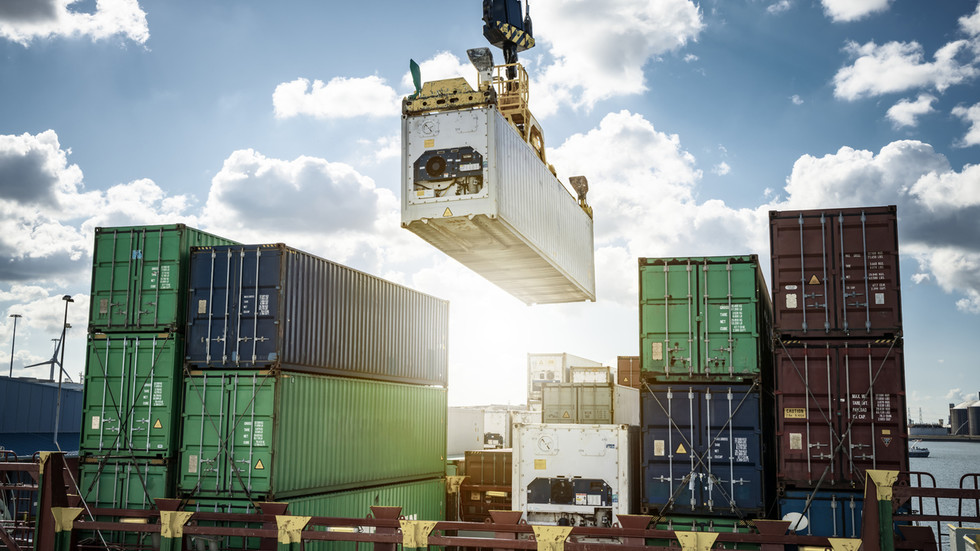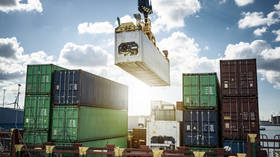
Trade turnover between Russia and the Netherlands has seen a year-on-year decline of 200%, RIA Novosti reports

© Getty Images / Jorg Greuel
Mutual trade between Russia and the Netherlands saw a threefold year-on-year decrease to €620 million ($662 million) in July, having plunged to its lowest level since 2015, RIA Novosti is reporting on Saturday, citing Dutch customs data.
In July, the EU country’s imports of Russian goods dropped 14% month-over-month to €419 million, marking a decline by 250% compared to the same period a year ago. Meanwhile, exports of goods from the Netherlands to Russia amounted to €201 million in July, marking a month-on-month increase of 7%. However, in annual terms they’ve fallen by nearly 50%.
As a result, the Dutch trade deficit with Russia saw a major year-on-year decline of more than 400% to €218 million, marking the minimum since October 2020.
Earlier this year, Statistics Netherlands (CBS) reported that the value of Dutch goods exports to Russia dropped 38% in 2022. This sharp decrease was mainly seen in sales of semiconductors and chips, transport equipment and machinery, as well as flowers and plants. Meanwhile, the import value of goods from Russia rose by 13%, mostly due to higher fuel prices.
READ MORE: EU state bypassing sanctions on Russia – media
Dutch exports to Russia have been decreasing as a result of sanctions imposed on Moscow by the Western allies in response to its military operation in Ukraine. Since February 2022 the EU has adopted multiple rounds of sanctions against the nation, including asset freezes, restrictions on the country’s financial sector, trade embargoes, as well as measures targeting individuals and state companies.
The bloc has introduced a ban on imports of products of iron and steel, coal, wood and cement. At the same time, imports of mineral fuels from Russia have been increasingly restricted, partly due to a price cap on Russian oil and petroleum products.
For more stories on economy & finance visit RT’s business section




